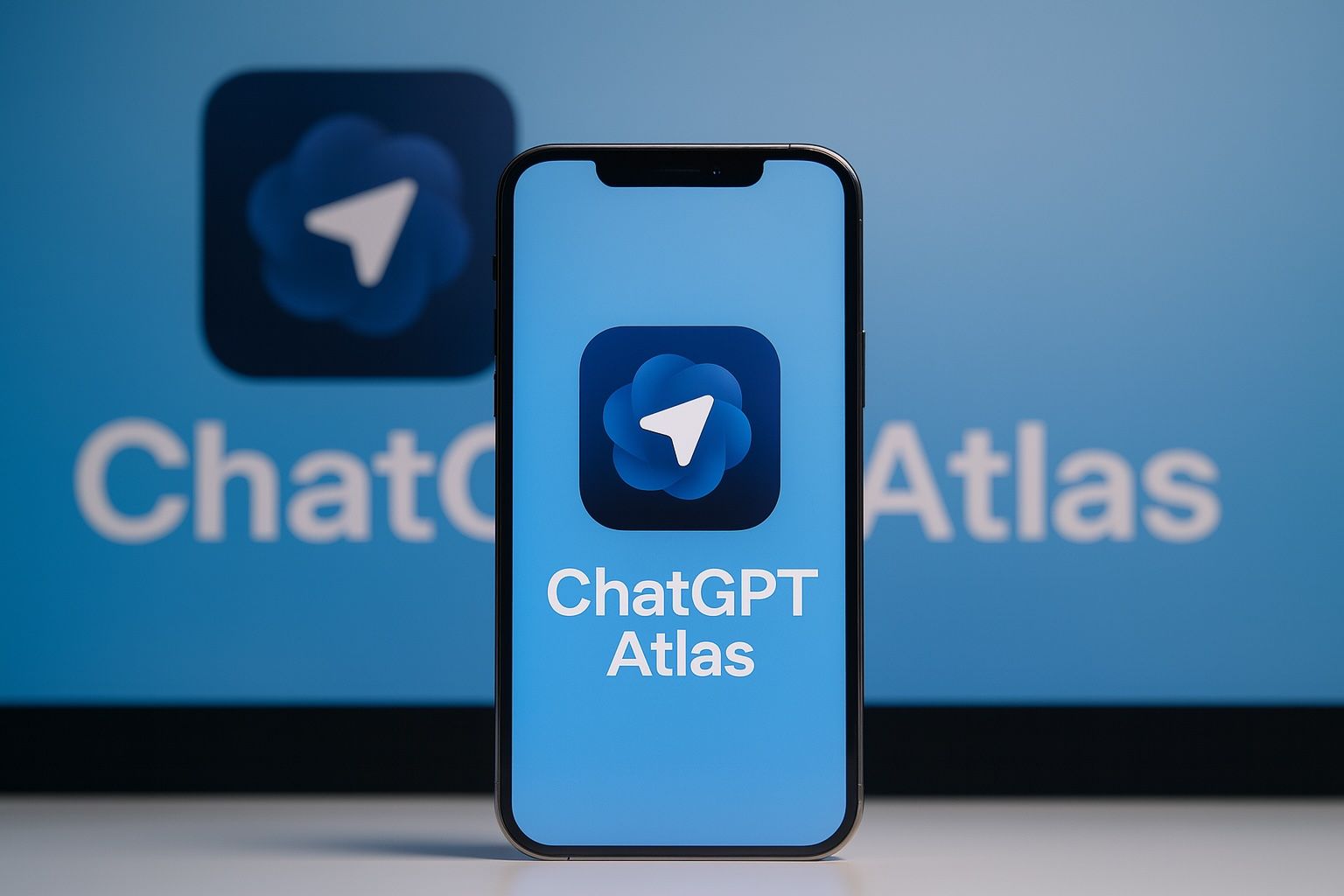- Launch: OpenAI officially released ChatGPT Atlas on October 21, 2025, a brand-new AI-powered browser (macOS first; Windows/iOS/Android “coming soon”)openai.com1 .
- Integrated AI: Atlas fully embeds ChatGPT into every tab (search, writing, images, etc.), with an “Ask ChatGPT” sidebar. It can summarize pages, revise email drafts, even auto-complete shopping or research through a new agent modetomsguide.com2 .
- Memory Feature: An optional “browser memory” lets ChatGPT remember your open tabs, visited sites and tasks to recall them later (e.g. “find the job postings I saw last week”)tomsguide.comopenai.com. OpenAI says memories are user-controlled and not used for model training by default3 .
- Privacy Concerns: Journalists warn Atlas “out-surveils even Google Chrome” by storing detailed browsing “memories”washingtonpost.com. Tech critics note this raises red flags – EFF researcher Lena Cohen calls it “a privacy nightmare” when sensitive data is inadvertently saved4 .
- AI Browser Race: Atlas joins rivals like Perplexity’s Comet and Google’s AI-boosted Chrome. OpenAI’s CEO Sam Altman says this is a “once-a-decade” chance to redefine browsingapnews.comwashingtonpost.com. But Chrome still has ~70% market share, so any new entrant is challenging a giant5 .
- Market Reaction: News of Atlas spooked investors. Alphabet (Google) shares slid roughly 2–3% on Oct 21investing.comibtimes.co.uk, reflecting fear of disrupted search revenues. However, analysts say Google likely will catch up sooninvesting.com. “Atlas raises the browser bar,” notes Gene Munster of Deepwater Asset Management, but he expects Google to respond with its own AI upgrades6 .
- Expert Takeaways: Security analysts caution users to stay in control. Forrester’s Paddy Harrington warned Atlas’s deep personalization “takes personality away from you” with all your dataapnews.com. Others highlight Atlas’s safeguards: agent mode can auto-click and scroll, but cannot install software or access your files without permissionopenai.com7 .
In-depth report:
ChatGPT Atlas is not just a regular browser with an AI tacked on – it is built around ChatGPT.techradar.com At launch it’s essentially a Chromium-based browser where every tab can become an interactive conversation. OpenAI describes it as a “super-assistant” that understands your goals and context, auto-prompting actions without copy-pasteopenai.comtechradar.com. In practice, this means Atlas replaces Google Search with ChatGPT’s engine, adding a chat pane to web pages for summaries, rewriting tasks, or deeper analysiswashingtonpost.com8 .
Key Features: Atlas integrates ChatGPT “in every tab”tomsguide.com. For example, if you’re researching a recipe or shopping site, the built-in assistant can compare products or compile a grocery list from page contentopenai.com. It also has smart commands: you can say “reopen my travel site from yesterday” and Atlas will obeytomsguide.com. Crucially, agent mode (preview for paid ChatGPT users) lets ChatGPT literally browse for you – opening tabs, clicking links, filling forms and returning the resultsapnews.comtechradar.com. As TechRadar reports, agent mode works like an “Operator” tool: it can plan multi-step tasks (e.g. plan a dinner party), analyze multiple pages, and even build slide decks, all by itself9 .
Memories and Privacy: Atlas’s built-in “browser memory” is optional but powerfultomsguide.comtechradar.com. If enabled, it remembers sites you visited, facts from pages, and tasks you started, so ChatGPT can remind you later. (You might ask Atlas to “find those Halloween decorations I was looking at last week,” and it can.) These memories only attach to your ChatGPT account, and you can view or delete them anytimeopenai.comtechradar.com. OpenAI emphasizes that browsing data isn’t used for training its AI by defaultwashingtonpost.com, and users can always turn memories off or browse in incognito modetechradar.com10 .
However, watchdogs warn the memory feature is intrusive. Washington Post columnist Geoffrey Fowler noted Atlas “out-surveils even Google Chrome” by tracking not just URLs but content summarieswashingtonpost.com. The Electronic Frontier Foundation’s Lena Cohen found Atlas remembered details of deeply personal searches (e.g. health services), calling this “extensive data collection” frighteningwashingtonpost.com. Another expert quipped that an AI working with your browsing profile “takes personality away from you”apnews.com. OpenAI says it built in controls (allow/block sites, disable memory, etc.) to mitigate thistomsguide.comtechradar.com, but privacy advocates urge caution.
Competition and Stocks: Atlas’s release makes it a direct rival to Google Chrome. AP News reports that OpenAI sees billions of search users at playapnews.com. Google is already adding AI (Gemini) to Chrome, and other AI browsers (Perplexity’s Comet, The Browser Company’s Arc, etc.) are emergingwashingtonpost.comtechradar.com. In the market, Alphabet’s stock reacted: GOOGL fell ~2.4% after Atlas’s unveilinginvesting.com. But on the same day after Altman’s event, shares partly rebounded as no immediate threat to ad revenue was announcedinvesting.com. “Atlas raises the browser bar,” says investor Gene Munster, but he predicts Google “will likely respond within a year” with competitive featuresinvesting.com. Indeed, he saw Google’s stock bounce when it noted search improvements were cominginvesting.com. In short, analysts see both OpenAI and Google benefiting long-term, but they’ll fight over who dominates search and advertising moving forward.
Outlook: OpenAI is pushing that AI isn’t just academic – it’s now your everyday interface to the web. Sam Altman calls this a “rare, once-a-decade opportunity to rethink what a browser can be”apnews.com. If Atlas’s vision holds, many future tasks (shopping, scheduling, research) may start with a chatbot instead of typing keywords. The big question is user trust. Will people adopt a browser that “knows everything” about them? Experts advise balancing convenience with caution: use privacy modes when needed and monitor what the AI agent doesopenai.comtechradar.com. For tech stocks, investors will watch how OpenAI monetizes Atlas (it’s free now, but advanced features require paid plansopenai.com) and whether Big Tech counters with their own AI tools. As one commentator notes, Atlas is a huge leap – but only time will tell if it can unseat Chrome’s entrenched role and earn users’ confidence11 .
Sources: Official OpenAI announcementopenai.comopenai.com; coverage by Washington Postwashingtonpost.comwashingtonpost.com and TechRadartechradar.comtechradar.com; AP Newsapnews.comapnews.com; investor newsinvesting.cominvesting.com; plus expert quotes (EFF’s Lena Cohenwashingtonpost.com, Forrester’s Harrington12 ).






